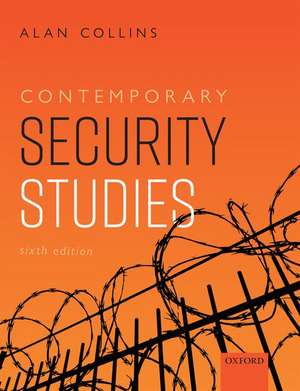Contemporary Security Studies
Editat de Alan Collinsen Limba Engleză Paperback – 14 feb 2022
Preț: 311.06 lei
Preț vechi: 332.02 lei
-6% Nou
Puncte Express: 467
Preț estimativ în valută:
59.52€ • 62.31$ • 49.25£
59.52€ • 62.31$ • 49.25£
Carte disponibilă
Livrare economică 04-10 martie
Livrare express 01-07 martie pentru 73.70 lei
Preluare comenzi: 021 569.72.76
Specificații
ISBN-13: 9780198862192
ISBN-10: 0198862199
Pagini: 584
Dimensiuni: 189 x 246 x 41 mm
Greutate: 0.98 kg
Ediția:6
Editura: OUP OXFORD
Colecția OUP Oxford
Locul publicării:Oxford, United Kingdom
ISBN-10: 0198862199
Pagini: 584
Dimensiuni: 189 x 246 x 41 mm
Greutate: 0.98 kg
Ediția:6
Editura: OUP OXFORD
Colecția OUP Oxford
Locul publicării:Oxford, United Kingdom
Recenzii
A comprehensive and well-balanced introduction to the complex field of security studies, providing a wealth of conceptual and empirical material to give students a well-grounded and representative overview of a dynamic and rapidly changing area of study.
Notă biografică
Alan Collins is a Professor in International Relations at Swansea University
